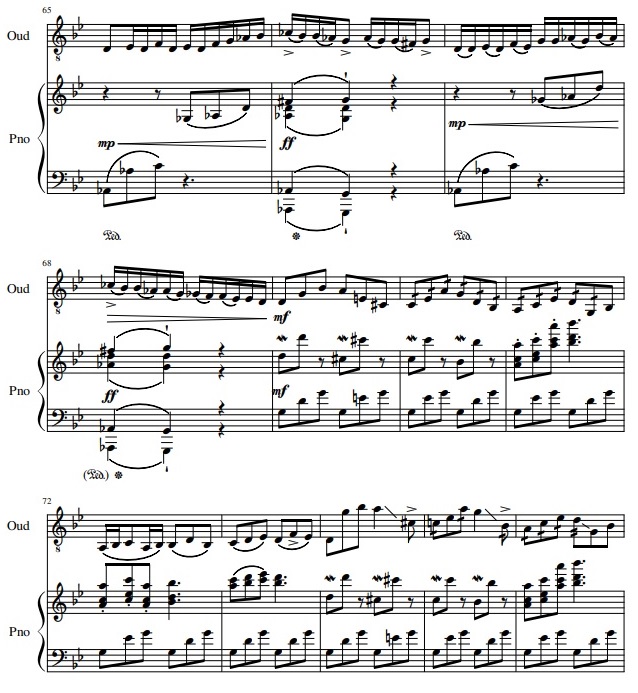Is micardis an ace inhibitor
63, and itsstructuralformulais:. Telmisartan keeps blood vessels from narrowing, which lowers blood pressure and improves blood flow. ∙ 2011-01-03 22:42:07 Micardis is an angiotensin II receptor blocker (sometimes called an ARB). 0001) Importantly, ACE inhibitors are more beneficial than ARBs in terms of reducing all-cause mortality is micardis an ace inhibitor and cardiovascular-related mortality. This narrowing can cause high blood pressure and forces the heart to work harder Angiotensin II is a substance in the body which causes blood vessels to narrow, thus increasing blood pressure. Taken independently, ACE inhibitors or ARBs are reasonably safe and quite effective for controlling high blood pressure.. Telmisartan is an angiotensin II receptor blocker (sometimes called an ARB) that is used to treat high blood pressure (hypertension). Another ACE inhibitor, enalapril, rated highly for heart pumping measures such as ejection fraction and stroke volume, but was associated with the highest risk of side effects such as cough, gastrointestinal discomfort, and a reduction in kidney function. ACE inhibitor-induced cough is believed to be related to the accumulation of bradykinin,substance P,and prostaglandins resulting from the inhibition of ACE. The aim of this review was to compare outcomes and adverse events. ACE inhibitors
where can you get tamiflu prevent an enzyme in the body from producing angiotensin II, a substance that narrows blood vessels. 1 Exclusion criteria included major renal artery stenosis, uncorrected volume or. 2) -----DOSAGE AND ADMINISTRATION----- • May be administered with or without food (2. A minority are available in generic form at this time. Common side effects of Micardis HCT may include: dizziness, feeling tired; nausea, diarrhea; back pain; or. (SOR: A, based on a meta-analysis. ACE inhibitors reduce the production of Angiotensin-II, whereas ARBs block them from binding to receptors on cell walls). This is not a complete list of side effects and others may occur. Its empirical formula is C 33 H 30 N 4 O 2, its molecularweight is 514. 1) • Cardiovascular (CV) risk reduction in patients unable to take ACE inhibitors (1. Clinical studies have shown that people having ARBs are at higher risk of developing hypotension, renal abnormalities, and hyperkalemia.. Patients receiving ACE inhibitors had more cough (8. The other reported adverse effects are liver problems and effects on the fetus. Publication types Review MeSH terms is micardis an ace inhibitor Adrenergic beta-Antagonists / therapeutic use. [6] In 2018, it was the 292nd most commonly prescribed medication in the United States, with more than 1 million prescriptions Incidence rates of adverse events for the combined ACE inhibitor treatments and for telmisartan were similar (42. 7% for telmisartan, respectively). [6] In 2018, it was the 292nd most commonly prescribed medication in the United States, with more than 1 million prescriptions Angiotensin II is a substance in the body which causes blood vessels to narrow, thus increasing blood pressure. Most guidelines for the management of patients with cardiovascular disease recommend angiotensin-converting enzyme (ACE) inhibitors as first-choice therapy, whereas angiotensin receptor blockers (ARBs) are merely considered an alternative for ACE inhibitor-intolerant patients. Blood pressure response is dose-related over the range of 20 to 80 mg [see Clinical Studies (14. Call your doctor for medical advice about side effects. Some of the more commonly reported side effects with ACE inhibitors include: A dry persistent cough Blurred vision Dizziness Dry mouth or loss of taste in the mouth Fatigue Gastrointestinal upset (such as constipation, diarrhea, or nausea) Headache Increased blood levels of potassium and creatinine. Micardis HCT is a combination medicine is used to treat high blood pressure (hypertension). Enalapril Angiotensin-converting enzyme (ACE) inhibitors are medications that help relax the veins and arteries to lower blood pressure. Introduction: Cough is an adverse event associated with the angiotensin-converting enzyme (AA inhibitor drugs. Telmisartan works by blocking the effect of angiotensin II. Adverse effects [ edit] Common side effects include: low blood pressure, cough, hyperkalemia, headache, dizziness, fatigue, nausea, and kidney impairment. It is an angiotensin II receptor antagonist and works by blocking the effects of angiotensin II. Incidence rates of adverse events for the combined ACE inhibitor treatments and for telmisartan were similar (42. When the effect of angiotensin II is blocked, your blood vessels relax and your blood pressure goes down.
Micardis 40mg Tablet
Micardis is used to treat high blood pressure (hypertension). Lowering blood pressure may lower your risk of a stroke or heart attack. Telmisartan is an angiotensin II receptor blocker (sometimes called an ARB blocker). [18] is micardis an ace inhibitor [19] The main adverse effects of ACE inhibition can be understood from their pharmacological action. 1 exclusion criteria included major …. Micardis HCT side effects (more detail). Micardis HCT may also be used for purposes not listed in this medication guide. [1] Telmisartan was patented in 1991 and came into medical use in 1999. When these categories are combined, however, there can be serious complications It’s a prescription drug that’s used to: treat high blood pressure in adults and some children lower the risk of stroke in adults* with high blood pressure and left ventricular hypertrophy. Lowering blood pressure may lower your risk of a stroke or heart attack Telmisartan is an angiotensin II receptor blocker (sometimes called an ARB blocker). Hydrochlorothiazide belongs to the group of medicines called diuretics ARBs are preferred for patients who have adverse reactions to ACE inhibitors. Brand names like Atacand, Avapro, Azor, Benicar, Diovan, Exforge, Micardis and Teveten may be more easily recognized than their generic equivalents. When these categories are combined, however, there can be serious complications Unlike ACE inhibitors, the angiotensin-II receptor antagonists are not significantly associated with cough. Lowering blood pressure may lower your risk of a stroke or heart attack Use of telmisartan with an ACE inhibitor is not recommended [see Warnings and Precautions (5. 5 – 9 Prospective studies have shown that cough occurs in 7 to 15 percent (or more) of. Angiotensin-II receptor antagonists (or blockers) are a newer class of antihypertensive agents. The eighth joint
where can you get furosemide national committee recommends ace inhibitors as an option for initial management of hypertension in patients who are not black, and recommends either an ace inhibitor or an arb in. MICARDIS is anon- peptide angiotensin II receptor (type AT 1) antagonist. 1)] Another ACE inhibitor, enalapril, rated highly for heart pumping measures such as ejection fraction and stroke volume, but was associated with the highest risk of side effects such as cough, gastrointestinal discomfort, and a reduction in kidney function. Very long-term prospectively collected observational data from the Glasgow Blood Pressure Clinic and the UK General Practice Research Database strongly support an advantage of ACE inhibitors over CCBs for cardiovascular morbidity and. You may report side effects to FDA at 1-800-FDA-1088. The usual starting dose of Micardis tablets is 40 mg once a day. Get emergency medical help if you have signs of an allergic reaction: hives; difficult breathing; swelling of your face, lips, tongue, or throat. ACE inhibitor drug list with example medications, mechanism of action, indications, and side effects of cough, angioedema, hyperkalemia potassium. Studies in high-risk patients suggest that ACE inhibitors are superior to CCBs and other drugs in protection against cardiovascular events and renal disease. Taken independently, ACE inhibitors or ARBs are reasonably safe and quite effective for controlling high blood pressure. ) ARBs cause less cough than ACE inhibitors, and patients are less likely to. No, Micardis is an ARB (angiotensin II receptor blocker). These drugs are selective for angiotensin II (type 1 receptor); unlike angiotensin-converting enzyme.





